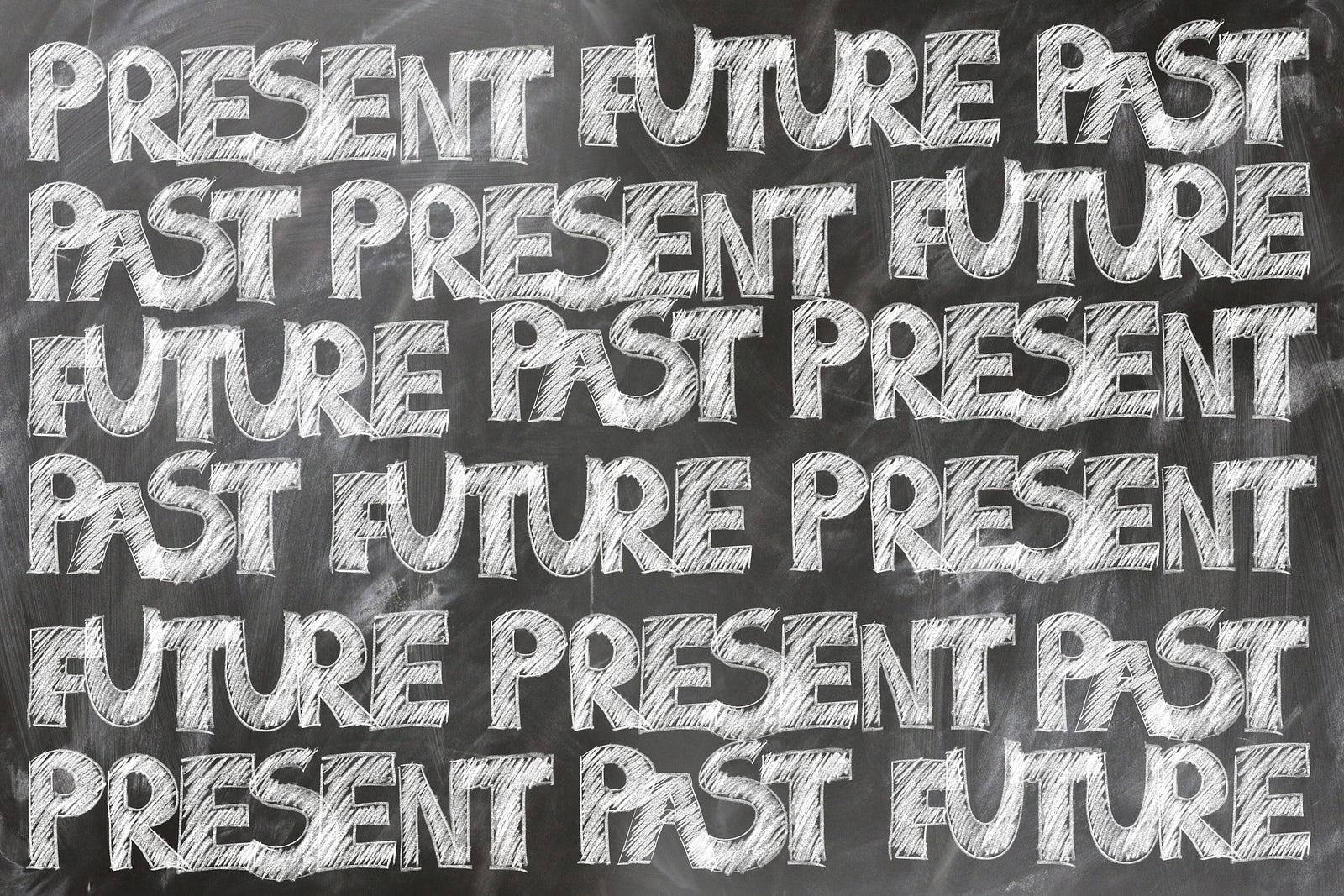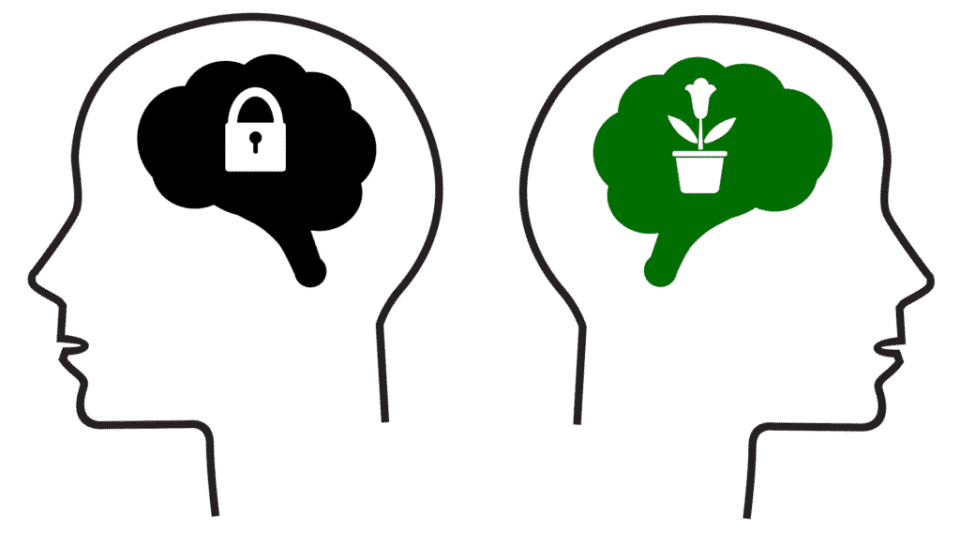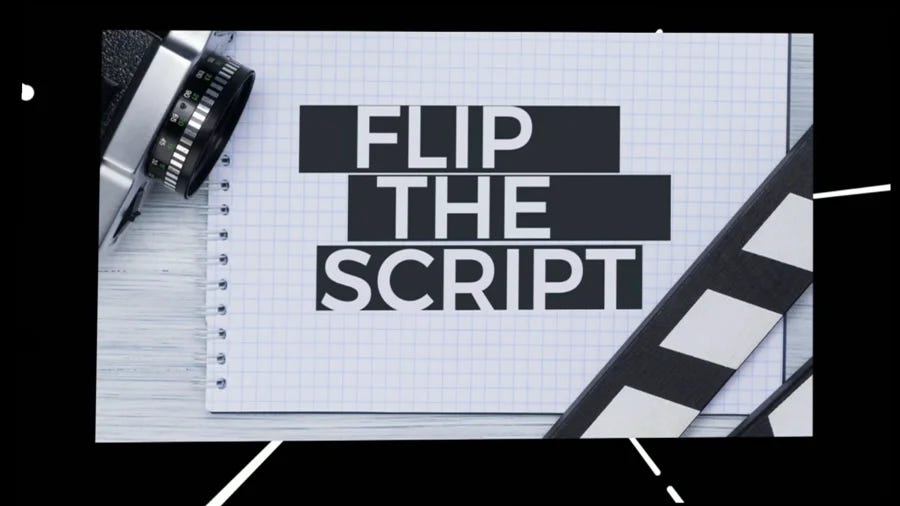Get outside perspectives, double-check your stories, and master the art of pronoia

I heard something the other day:
100% of the stories we tell ourselves are true — even if they aren’t.
I’m not sure where it’s from, but it’s true. Numerous times, I’ve sat with my friends and recounted old stories. Despite my belief that a particular event played out one way, they assure me it went differently. For instance, I was discussing a moment in high school when I’m certain my friend said something to the teacher that made everybody laugh, but they maintain it was me. I still argue about it.
Why Do We Change Stories in Our Heads?
Why is it we can change the story in our minds, in essence, our memories? It turns out that cognitive biases influence our thoughts. One is a memory bias.
Buster Benson compiled a cognitive bias cheat sheet, which lists the 175 biases, in four main areas — John Manoogian III added a fantastic graphic that summarises the groupings. Here’s a selection:
- We store memories differently based on how we experienced them (picture superiority effect, the Google effect, misattribution of memory — I suffered this in the above example)
- We notice things already primed in memory or repeated often (Baader-Meinhof Phenomenon or frequency illusion — I wrote about it here without knowing what it was)
- We’re drawn to details that confirm our beliefs (confirmation bias, selective perception, self-fulfilling prophecy)
- We find patterns even in sparse data (confabulation, clustering illusion)
- We project our current mindset and assumptions onto the past and future (hindsight bias, outcome bias, telescoping effect, rosy retrospection)
These, coupled with the opening adage, have made me realise that we play a role in assessing the past and its impact on our future.
Your Past Is Important but Doesn’t Define Your Future
People say, “your past doesn’t define your future,” but what does it mean?
There is power in owning your story.
Phillip McKernan’s program, “One Last Talk,” encourages people to write about moments that defined them, then share them — publicly. I recently started mine; I’m a long way from finishing. But I’ve walked this journey for a few years and am increasingly aware of how I process and prioritise things.
For instance, I realised I was prioritising effort in areas that others would acknowledge. I was choosing “gold-star” work instead of the most important work. The gold-star work wasn’t necessarily easy, but it was what others would recognise me for. I’m still working to minimise this bias.
I understand that this came in part from having a younger brother who required a lot of medical attention and parents working their hardest to make do and seeking their attention. I now focus on creating internal recognition systems instead. But I had to understand my past, then choose to do something different.
What You’re Thinking May Be Wrong — or Maybe Just Wrong for Now
Many people fit into the always bucket … “Things always go bad for me”; “I know things will change; they always do.” A trek through their history will highlight that this isn’t always true.
Carol Dweck promoted the terms growth and fixed mindset in her book “Mindsets.” (Her TED talk, “The power of believing you can improve” has been viewed over 9 million times.) Someone told me, “I’m not very good at having difficult conversations.” I pointed out that they’d recently shown they could do really well. They replied, “I’ll never be good at them,” and I reminded them how much they’d improved already. I reframed their response as “You’re not that good at difficult conversations yet.” Adding the yet reframes it as a growth mindset. Their potential isn’t finite or fixed.
Sometimes What’s Holding You Back Is You
That conversation highlighted something else. This person held a limiting belief about themselves: they’re bad at difficult conversations.
My favourite example is late medieval nobles believing they were made of glass. Called “the glass delusion,” they believed that if they touched other people or their surroundings, they would fracture or shatter. This severely limited their lives. Many spent extended periods wrapped in pillows and blankets.
While it’s unlikely anyone reading this believes they’ll shatter upon touch, our minds do limit what we believe we can do. A declaration that someone will never be good at difficult conversations is a statement about their internal beliefs.
These limiting beliefs don’t assist you, but everyone has some. I’ve been blessed by a growth mindset in many areas of my life but still held on to some limiting beliefs. Naming them or finding people I trust to call them out has been invaluable.
If you find yourself saying “I can’t” or “I’ve never,” always put yet at the end.
Sometimes Events Seem to Stack up but Don’t
If you find yourself generalising, it’s probably a limiting belief. When you say “I always stuff this up” or “I’m so unlucky,” you’re playing down your abilities and confidence.
Conversely, statements like “it always works out in the end” and “all my friends are amazing” are also generalisations. They’re almost certainly not always true; sometimes things won’t work out, and sometimes your friends need help.
Our brain generalises to simplify the information we receive, process, and recall. Otherwise, we have to process too much information to make decisions. Furthermore, we may see events with some repeating consistent aspects and infer that it always happens this way (the clustering illusion mentioned above).
So, if you catch yourself, a friend, or a peer generalising, call it out. Ask if there was another reason it happened that way or a time it didn’t work out.

Flip the Script
Often, our brains steer our thoughts toward negatives rather than positives. I believe this is in part because bad news spreads faster. People remember things better with strong emotions attached, and many fear that feeling strong positive emotions frequently opens them up to more pain.
However, some people’s brains prioritise information as a positive potential rather than a negative conclusion. They see the opportunity in every scenario. For some, these are the annoyingly chipper people in the office. Those who don’t need a morning coffee to operate. They continuously see the potential in people.
If you believe you may be limiting your potential, here are some ways you can flip the script.
1. Pronoia
Paulo Coehlo wrote a now-famous book, “The Alchemist,” which portrays the journey of a young shepherd seeking treasure. In many ways, however, it acts as a metaphor for finding your life’s purpose. One of its key themes is:
And, when you really want something to happen, the whole universe will conspire so that your wish comes true — Paulo Coehlo
This demonstrates pronoia, a term popularised by an article in the publication Social Problems in 1982, by Fred H. Goldner. Pronoia is the opposite of paranoia. Paranoid people are certain the world is out to get them. Pronoid people are confident the world is out to support them.
Many people are cynical of this approach, but those who have given their environment and the people they interact with the benefit of the doubt have often found that it does work out.
This approach distills to two key decisions:
- I have chosen to believe that everyone I interact with will help in some way, and I will help them.
- If I am clear in what I want to achieve, I will see opportunities to get there, and things will fall into place to let it happen.
These decisions allow a positive outcome, which reinforces this point of view. The opposite will often stimulate negative interactions and reinforce that as the correct starting position.
This fits the cognitive bias called the self-fulfilling prophecy.
You have a choice: do I flip the script and change to pronoia?
2. Find a mentor
People don’t often detect their own limiting beliefs and generalisations. However, a good mentor will call them out straight away. If you want to change your life narrative, find a good coach and mentor (I wrote about starting mentoring relationships the right way here).
A good mentor will dig into generalisations and limiting beliefs to understand why you believe that about yourself. They’ll challenge you to find the truth and provide a plan to move past them. They do this by understanding your version of success and what you believe is holding you back.
From here, it’s up to you. Do you flip the script and push to prove that it’s not a limitation? Or do you navigate to an alternate version of success that is constrained by those beliefs? A mentor will push you to the first.
3. Check your stories
If you had to write down the three most pivotal moments in your life, what would they be? These are the moments that shaped who you are. It might not be your marriage or the birth of your child (they certainly shaped what you are). It may have been realising the depth of your love for your partner when you were cleaning up the dropped spaghetti, or the sense of obligation you had when your baby first smiled at you. It may have been the time you nearly stepped into traffic and a stranger pulled you out of the way or that time someone important to you died. Perhaps it was graduating from university or handing back the wallet full of money.
Either way, find those three moments and write them down. Focus on what defines you; what attributes do you now personify because of those moments? What positively and negatively affected you?
Once you’ve written them, you have a choice. Are these the stories I choose to define me, or is my defining story not yet written? Your choice is to either own those stories and attributes or flip the script and rewrite your image of yourself.
4. Try shifting your mindset
Another way to shift your mindset is an “attitude of gratitude.” The gratefulness movement is gaining traction. Numerous studies espouse the benefits of gratitude, some described in this Forbes article. It sounds like a bit of psychobabble, doesn’t it? Just talk about the things you’re grateful for, and you’ll improve in every facet of your life. I dare you to try it.
In the podcasts I listen to, many successful and happy people have a daily gratitude practice. They use a simple journal profile. It has been consolidated into an easy-to-use book, but the same structure repeats itself.
First thing in the morning, you write the following:
- Three things I’m grateful for today
- Three things that will make it a great day if I achieve them
- A positive affirmation about myself
Then in the evening:
- Three amazing things that happened today
- A reflection on how I could have made today even better
Its authors, at Intelligent Change, titled it “The Five Minute Journal” and state that doing it for two weeks is sufficient to start to change your mind.
With this foundation, it’s easier to flip your script. If we think more positively, we can change more. Look for things to be grateful for, rather than complain about.

How to Rewrite Your Story
100% of the stories we tell ourselves are true — even if they aren’t.
What stories are you telling yourself? Which do you wish you could change? What are you willing to do to change them?
If you find yourself using cognitive biases to write a negative story, look at opportunities to rewrite it.
If you think positively, it provides an opportunity for positive outcomes. If you think negatively, you support a negative narrative.
You’re in control of the story you tell yourself. Even if it isn’t true (in your mind), you can start telling yourself a different one. One that makes you and those you interact with happier.
You have more control than you think. Start writing a new story for yourself.

I learn, write and connect. Stories available here too.
